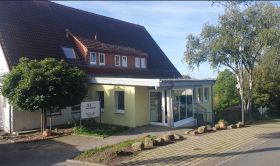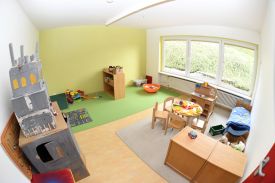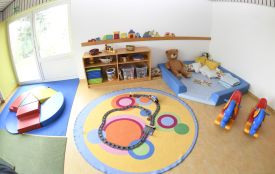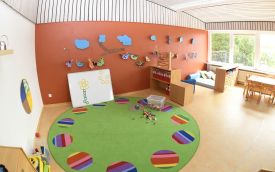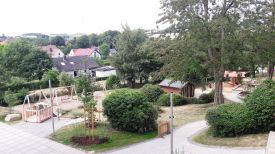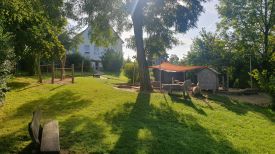Basics
The pedagogical work, as well as all actions in the Katholische Kindertageseinrichtungen Hochstift gem. GmbH, is based on the Christian image of man and thus on the unconditional and unique dignity of every human being. The rights of children, especially their right to holistic education and upbringing and their right to participation, are based on the dignity of the person. The aim of pedagogical action is to enable children to participate in social, political, economic, cultural and religious life in an increasingly independent and responsible manner as free and responsible persons.
Education is primarily understood as the child's own activity. The child forms itself by shaping its relationship to itself, to its fellow human beings, to the world and to God. In doing so, the child needs pedagogical guidance that shapes the framework for the child's self-education process. This includes, in particular, unconditional forms of co-determination, co-creation and participation:
- Children become aware of their own interests, wishes and needs because they are asked about them.
- Children learn that their feelings and opinions are important because they are respected and taken into account.
- Children experience that their opinions are taken seriously, as they can influence processes in the group and in their environment.
- Children experience that they are an important part of the community, as they are accepted with their strengths and weaknesses.
- Children experience: "It depends on me!", as they can take responsibility for themselves, for others and for a cause.
- Children learn that their decision-making possibilities are limited by objective conditions.
Pedagogical action stimulates instead of ordering, it motivates instead of regulating, it encourages instead of criticising and it supports instead of limiting.
The central way for children to acquire the world is through play. This understanding opens up educational and developmental opportunities for the children. This also includes opening up different approaches to their environment with them.
Education is shaped by each child in its own way, at its own pace, according to its own interests. In this process, the acquisition of knowledge and content are on an equal footing with the acquisition of experiences, thought patterns, attitudes and orientations. The acquisition of self-, social, factual and methodological competences has both cognitive and action-practical components. Knowledge and skills are on the same level.
The facilities offered are based on an inclusive understanding. It takes into account the individual constitutions of the children as well as the diverse characteristics of their living environments and their different world views and religiosities. All children and their families, with their different social, cultural and religious backgrounds, are accepted as an enrichment in the life of the facility community.

